The Ultimate Summer Reading List for Startup Founders
40 livres pour vous aider à passer de l'excellent à l'incroyable
Bienvenue dans les journées de l'été !
As a startup founder, this time of year can feel a bit exhausting. Things tend to move slower and, for many places at the moment, the heat is unbearable. 🔥
Heureusement, l'été est le moment idéal pour se plonger dans les livres et apprendre quelque chose de nouveau, ou peut-être simplement rafraîchir ses connaissances.

That’s why we’ve compiled a list of 40 — yes, FORTY — books for startup founders to add to their summer reading list. 📚
This list includes a huge range of perspectives and topics, so that you can find what is most relevant to you, your company and what you’re currently trying to accomplish — whether that’s accessing funding, implementing sprints or testing out remote working options.
We’ve got you covered. 🙌
Plus, we’ve categorized the books in a list below, so you can easily find the topic you’re looking for.
Bonne lecture !
Table of Contents
Leadership & Teamwork: 1–10
Product & Customers: 11–16
Growth & Marketing: 17–19
Strategy & Success: 20–29
Startup Life: 30–40
Leadership & Teamwork
1. Lean In: Women, Work and the Will to Lead by Sheryl Sandberg
Sandberg is, of course, the COO of Facebook, but she’s also very vocal about championing for women’s equality in the workplace — as evident by this book and the accompanying movement.

In 2010, Sandberg gave a TED talk in which she explained how women unintentionally hold themselves back in their careers. The talk has been viewed millions of times, and encouraged women to “sit at the table,” seek challenges and pursue their goals with gusto. 💪
This book continues in that same regard, and combines data, research and personal anecdotes to help change the conversation. It’s very practical in its approach, and includes advice on negotiation techniques, mentorship and building a satisfying career.
This instant classic is a must-read for startup founders — men and women alike — to better understand the biases and gender dynamics that exist in the workplace. And to combat them. 👊
2. The Five Dysfunctions of a Team by Patrick Lencioni
This (very) quick read is told as a fable — with very powerful lessons.
Lencioni décrit les causes de la politique et du dysfonctionnement des équipes, ainsi que les clés pour les surmonter.
As he suggests, the causes of dysfunction are both identifiable and curable. But that doesn’t mean it’s an easy process.
This is the perfect book for leaders in a company to better identify and understand dysfunctions and dynamics within their own teams — and to address any emerging issues. 🤝
3. The Culture Code: The Secrets of Highly Successful Groups by Daniel Coyle
Coyle’s book aims to answer questions such as, “Where does great culture come from?” and “How do you build and sustain it in your group, or strengthen a culture that needs fixing?” 🧐
Learn from some of the world’s most successful organizations, such as IDEO, the U.S. Navy’s SEAL Team Six and the San Antonio Spurs, and find out what makes them tick.
Throughout, Coyle identifies three key skills that generate cohesion and cooperation, and explains how diverse groups learn to function with a single “mind.” 🧠
Rempli d'exemples, d'antidotes et de conseils, ce livre changera votre perception de la culture d'entreprise, et ce que cela signifie d'avoir un réel pouvoir sur la culture que vous cultivez.
4. Radical Candor: Be a Kick-Ass Boss Without Losing Your Humanity by Kim Scott
From a very early age, we’re often told that if you don’t have anything nice to say, don’t say anything at all. 🙊
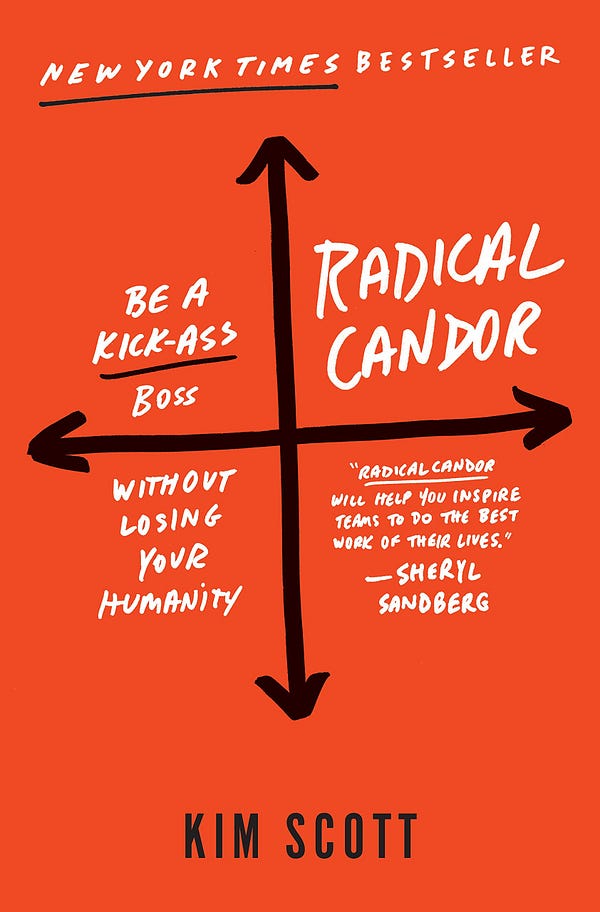
But, as many of us know, when you become a manager, it’s your job to say it. And your obligation.
Scott was an executive at Google and then at Apple, where she worked with a team to develop a class on how to be a good boss — she in turn came up with Radical Candor.
Radical Candor is a simple idea: to be a good boss, you have to “care personally” at the same time that you “challenge directly.”
Basically, when you challenge without caring, it’s obnoxious aggression. And when you care without challenging, it’s ruinous empathy. When you do neither, it’s manipulative insincerity.
This framework can help you build better relationships at work, and help with key responsibilities as a leader: creating a culture of feedback, building a cohesive team and achieving results you’re all proud of. 💛
5. The Startup Owner’s Manual by Steve Blank
This book is kind of a big deal, to put it lightly. It’s widely used by entrepreneurs worldwide, and many claim it’s one of the only books you ever need to start a business. 🤘
Elle vous guide, étape par étape, dans le processus de développement de la clientèle. La méthode a été créée par Steve Blank, expert en start-ups ultra-célèbre de la Silicon Valley, qui a contribué à faire avancer le mouvement Lean Startup.
This how-to guide includes more than 100 charts, graphs and diagrams, plus 77 checklists that will guide you as you drive your company toward profitability. 📈
It’s definitely worth reading, and re-reading, if you’re a startup founder.
6. La difficulté des choses difficiles par Ben Horowitz
Horowitz is a co-founder of Andreessen Horowitz and one of Silicon Valley’s most respected and experienced entrepreneurs.
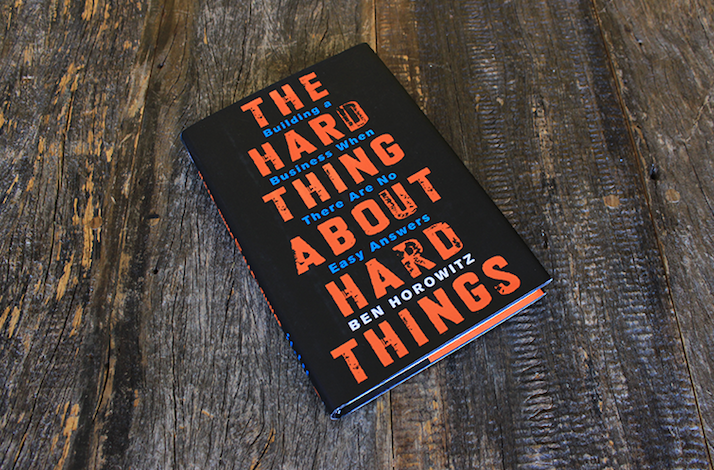
His book offers essential advice on building and running a startup — practical wisdom for managing the toughest problems business school wouldn’t cover, based on his popular blog. 👨💻
In a nutshell, he analyzed the problems that confront leaders every day and includes the insights he’s gained developing, managing, selling, buying, investing in and supervising technology companies.
It’s a funny and entertaining read, and is full of great advice and suggestions for how to handle some of the trickiest situations you can get into as a startup founder. 👍
7. Build Your Dream Network: Forging Powerful Relationships in a Hyper-Connected World by J. Kelly Hoey
Networking can be stressful for many, especially if it mostly feels like all you do is rub elbows at corporate cocktail events and add people on LinkedIn. 😓
Mais selon M. Hoey, à l'ère des médias sociaux, vous avez besoin d'une feuille de route moderne pour créer et entretenir des liens significatifs afin de vous démarquer et d'atteindre tous vos objectifs, quelle que soit leur importance.
Hoey est une chroniqueuse d'affaires et une experte en réseautage qui présente dans ce livre ses méthodes pour tirer le meilleur parti de ses relations.
It’s packed with amazing advice, pretty infographics and handy flowcharts that shows how small adjustments in your daily routine, generosity and goal-focused efforts can really set you apart. 😎
Hoey possède également son propre blog Medium, sous le même nom, avec encore plus de conseils et d'astuces.
8. Superbosses : Comment les leaders exceptionnels maîtrisent le flux de talents par Sydney Finkelstein
Finkelstein distills 10 years of research and 200+ interviews into this book to explain what makes a “superboss.” 💪
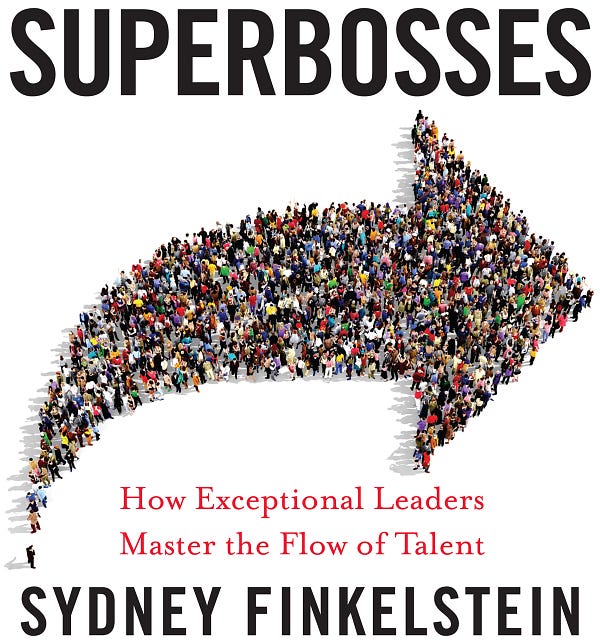
Elle a découvert qu'il existe des "super-patrons" dans presque tous les secteurs d'activité et que, si l'on étudie les cinquante principaux dirigeants d'un secteur, un tiers d'entre eux ont déjà travaillé pour un "super-patron".
While superbosses can differ in their personal styles, they all focus on identifying promising newcomers, inspiring their best work and launching them into highly successful careers. 👏
The perfect book for current leaders and future leaders alike — imagine a world full of superbosses!
9. Originals: How Nonconformists Move the World by Adam Grant
Grant relève le défi d'améliorer le monde avec un thème central : l'originalité.
He explains that it’s important to champion novel ideas, as it’s the thing that can create some of the most brilliant outcomes. ✨
À l'aide d'anecdotes et de recherches menées dans divers secteurs d'activité, il aborde des sujets tels que la manière de reconnaître une bonne idée, de s'exprimer sans être réduit au silence, de créer une coalition d'alliés, de choisir le bon moment pour agir et de gérer la peur et le doute.
This book is perfect for any startup founders who want to go against the grain and challenge the status quo. 🤜
10. The Founder’s Dilemmas: Anticipating and Avoiding the Pitfalls That Can Sink a Startup by Noam Wasserman
Deciding whether or not you should bring friends, investors and others into your new business venture can be an insanely tricky process. 🤔
That’s where this book comes in.
The wrong decisions can ultimately cause your company to go under — even if it’s a promising business idea.
It even includes insider stories from founders like Evan Williams of Twitter and Medium, and Tim Westergren of Pandora, while utilizing quantitative data on nearly 10,000 founders. 📊
Les problèmes de personnel sont la principale cause d'échec dans les start-ups. Ce livre vous propose des solutions.
Produits et clients
11. Setting The Table: The Transforming Power of Hospitality in Business by Danny Meyer
Meyer, of Shake Shack and Gramercy Tavern fame, started Union Square Cafe when he was only 27 years old. He simply started with a good idea and some hopeful investors. 🙏
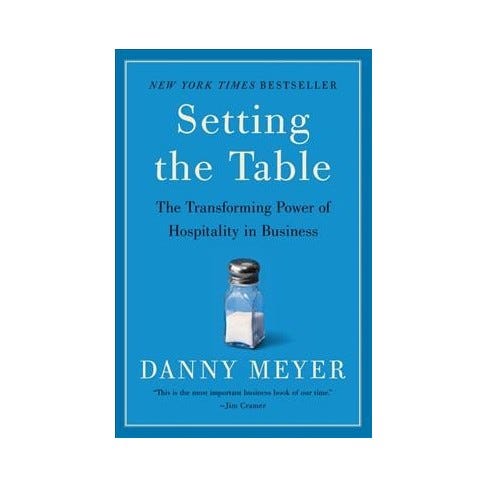
Now, he’s the co-owner of a restaurant empire.
But how did he beat the odds in one of the toughest industries out there? In this book, Meyer shares the lessons he learned in developing the philosophy he calls “Enlightened Hospitality.”
Startup founders can learn a lot from this book, regardless of industry, as it puts emphasis on the customers and your team — and the possibility to create something amazing. 😎
12. Hug Your Haters: How to Embrace Complaints and Keep Your Customers by Jay Baer
Comme l'explique Baer, les détracteurs ne sont pas votre problème, mais les ignorer l'est.
Eighty percent of companies say they deliver outstanding customer service, but only eight percent of their customers agree. This book explains how you can close that gap by reconfiguring your customer service to deliver amazing experiences. 🙌
The research within this book is based on an extensive proprietary study of how, where and why we complain — and gives you suggestions for how to transform the way you handle haters and teaches you to even embrace them.
13. Hooked: How to Build Habit-Forming Products by Nir Eyal
How do successful companies create products people can’t put down?

Eyal addresses this by introducing the Hook Model — a four-step process that subtly encourages customer behavior. It’s a process that many successful companies have learned over the years in one variation or the other.
Through “hook cycles,” products can reach their ultimate goal of bringing users back again and again without depending on expensive advertising or aggressive messaging. 🔄
Ce livre est incroyablement pratique et concret, et s'adresse à tous ceux qui souhaitent mieux comprendre comment les produits influencent notre comportement.
14. Will It Fly?: How to Test Your Next Business Idea so You Don’t Waste Your Time and Money by Pat Flynn
This book helps founders recognize whether or not their product or company is “clear for takeoff.” ✈
It’s full of practical advice that can be applied to any business, and focuses on action-based exercises and case studies to ensure that you’re ready to take your company to the next step.
Ce livre vous incite à faire preuve d'esprit critique et à agir délibérément avec votre entreprise.
15. The Sprint Book by Jake Knapp
Les sprints de conception peuvent être incroyablement bénéfiques lorsqu'il s'agit de créer de bons produits.
These sprints were invented at Google by Jake Knapp and perfected with more than 150 startups at Google Ventures, then shared with the world in this very book. 📖
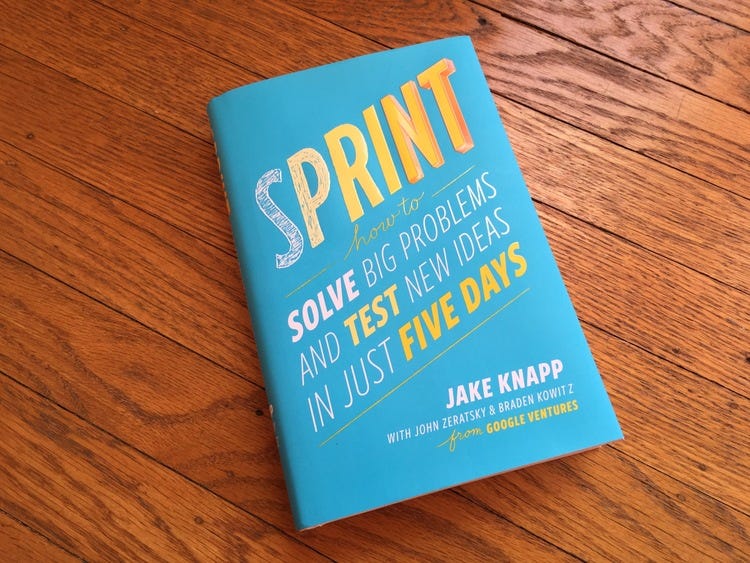
They also have an awesome website that’s packed with resources to help you implement design sprints in your company.
Definitely worth a read if you’ve been feeling stuck with needed changes to the UX/UI of your product, or just feeling like you aren’t feeling creative lately.
16. Comment transformer vos idées en produits logiciels par Poornima Vijayashanker
The idea around this book is to help you create products people will pay for before they’re even built. 💰
Vijayashanker a fondé trois entreprises et a personnellement guidé plus de 100 personnes qui ont lancé plusieurs produits avec succès.
Toutes les personnes avec lesquelles Vijayashanker a travaillé ont commencé avec différents niveaux de savoir-faire technique et commercial, voire aucun, mais toutes étaient passionnées par une idée et l'ont concrétisée.
With the right roadmap and processes in front of you, it’s possible for you to launch a winning software product, too. 🗺
Croissance et marketing
17. Traction: How Any Startup Can Achieve Explosive Customer Growth By Gabriel Weinberg and Justin Mares
There are a lot of buzzwords in the startup world that can just be dismissed as platitudes, but this book brings up a word that actually means something: traction. 📈
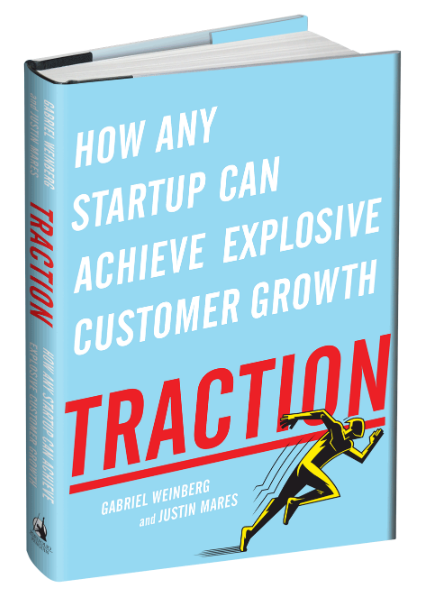
Comme l'affirment Weinberg et Mares, probablement en auditionnant pour le rôle de Captain Obvious, il est difficile de créer une entreprise prospère.
And for every startup that grows to the point where it can go public or be profitably acquired, hundreds of others die out. ☠
Most people understand that while it’s nice to have a unique offering, a great team and a lot of funding, successful companies are successful because they’re capable of growth and acquiring new customers — aka your traction.
This book is worth checking out if you’re a founder who is struggling to grow a company or if you’re feeling a bit stuck and need some inspiration.
18. Competing Against Luck by Clayton M. Christensen et al.
L'auteur de ce livre est considéré comme l'une des principales autorités en matière d'innovation et de croissance.
Written by a Harvard Business School professor and his colleagues, Christensen is THE guy when it comes to disruptive innovation and growing businesses. 😎
After years of research, they came to the conclusion that customers don’t buy products or services. They rather “hire” them to do “jobs.”
See where this is going? 😉
This book is all about the “Jobs to Be Done” approach and how you can implement it to help further grow your company.
19. Hacking Growth: How Today’s Fastest-Growing Companies Drive Breakout Success by Sean Ellis & Morgan Brown
Comment des entreprises comme Facebook, Airbnb et Uber sont-elles devenues, après des débuts modestes, les puissances qu'elles sont aujourd'hui ?
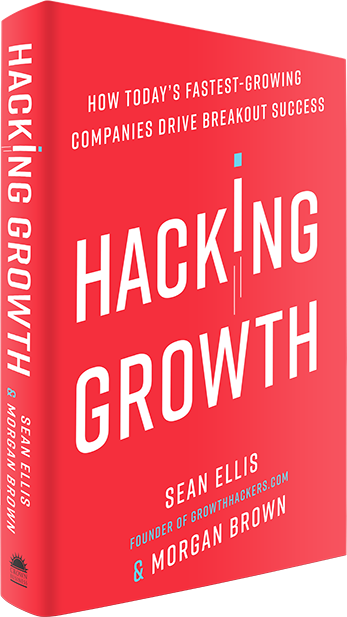
While many may think they just happened to build a great product and then crossed their fingers hoping it would catch on, we know better than that. 😏
There was a studied, carefully implemented methodology behind these companies’ extraordinary rise: growth hacking.
This book is all about how to implement growth hacking, and explains its purpose as a rapid-tempo testing and iteration that focuses on customers: attaining them, retaining them, engaging them, and motivating them to come back and buy more. 🤑
Strategy & Success
20. Good To Great: Why Some Companies Make the Leap…and Others Don’t by Jim Collins
Ce livre de gestion décrit comment les entreprises passent du statut de bonnes entreprises à celui de grandes entreprises, et comment la plupart des entreprises ne parviennent pas à effectuer cette transition.
Collins created a set of strict benchmarks and then spent more than 15 years researching “great” companies with his team and, well, this book was the end product. 📕
Dive into the “great” companies of the business world — from Coca-Cola to General Electric — and learn how they became the companies they’re known as today.
Tl;dr version for startup founders? The main reason certain companies become “great” is the fact that they narrowly focus the company’s resources on their field of key competence.
21. Thinking, Fast and Slow By Daniel Kahneman
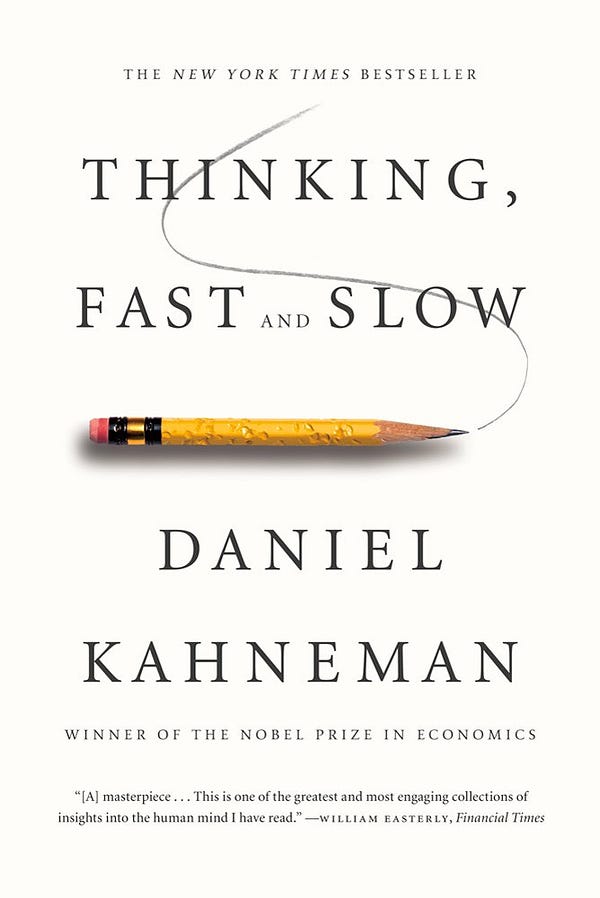
Rédigé par un lauréat du prix Nobel d'économie, ce livre a remporté en 2012 le prix de la communication des académies nationales, qui récompense le meilleur travail créatif contribuant à la compréhension par le public de sujets relevant des sciences du comportement, de l'ingénierie et de la médecine.
Not bad. 😅
En bref, le livre résume les recherches que Kahneman a menées pendant des décennies et aborde le concept des deux modes de pensée. Le système 1 est rapide, émotionnel et instinctif, tandis que le système 2 est logique, délibéré et lent.
This book can really change how you perceive your modes of thought, and is perfect for any startup founder looking for more understanding behind the psychology of how and why people think the way that they do. 🧠
22. Essentialism: The Disciplined Pursuit Of Less by Greg McKeown
Essentialism isn’t about getting more done in less time, but it’s rather about getting only the right things done. ⏲
It’s not a time management strategy, or a productivity technique. It’s a systematic discipline for discerning what is absolutely essential, then eliminating everything that is not, so we can make the highest possible contribution toward the things that really matter.
Sounds ideal, right? It’s definitely harder than it looks! 🏋
Essentialism is not one more thing to do — it’s instead a whole new way of doing everything. Check this book out if your work life is feeling cluttered!
23. Outliers by Malcolm Gladwell
Gladwell, as usual, takes this book as an opportunity to ask a pretty big question: what makes high-achievers different? 🤔
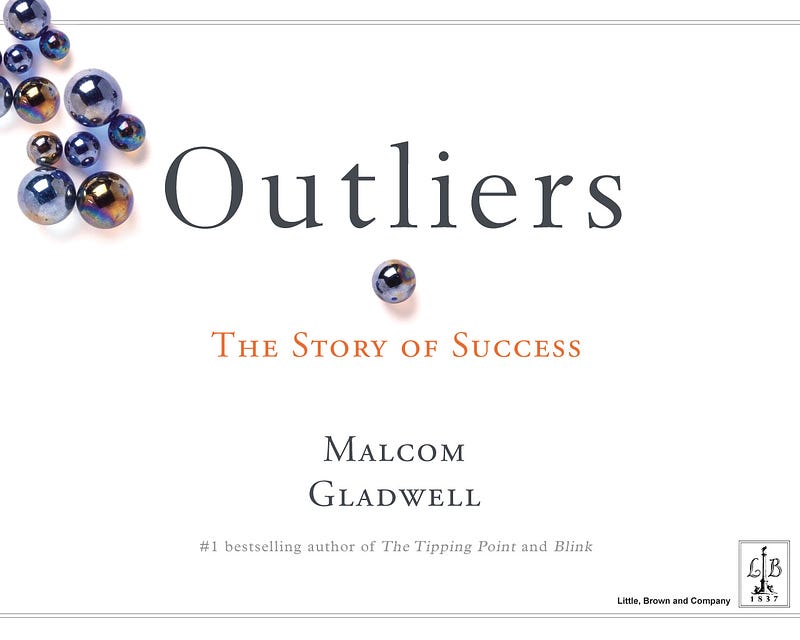
En bref, sa réponse est que nous accordons trop d'attention à ce à quoi ressemblent les personnes qui réussissent et pas assez à leur origine.
Their culture, their family, their generation and the unique experiences of their upbringing can all play a factor. 👨👩👧👦
Tout au long du livre, il présente plusieurs exemples et anecdotes, tels que les secrets des milliardaires du logiciel, les raisons pour lesquelles les Asiatiques sont bons en mathématiques et ce qui a fait des Beatles l'un des plus grands groupes de rock.
Un livre idéal pour tous ceux qui veulent mieux comprendre comment les grands succès deviennent de grands succès.
24. The Checklist Manifesto: How to Get Things Right by Atul Gawande
Yes, this book is about checklists — but it’s much more than that. ✅
Il explore ce que l'idée de la liste de contrôle révèle de la complexité de nos vies et de la manière dont nous pouvons y faire face.
Dans presque toutes les activités organisées, il y a de nombreux échecs évitables qui se produisent en raison de la complexité et du volume des connaissances que nous devons transmettre.
We train longer, specialize more, use ever-advancing technologies and we can still fail. 👎
Gawande argues that we can do better, using the simplest of methods: the checklist. Throughout the book, he explains what checklists can do, what they can’t do and how they could bring about revolutionary improvements in a variety of fields, to professions and businesses of all kinds.
25. Business Model Generation: A Handbook For Visionaries, Game Changers and Challengers by Alexander Osterwalder and Yves Pigneur
Si votre entreprise doit mettre en œuvre de nouvelles idées ou adapter ses produits, ce livre peut vous être d'une aide précieuse.
It features a highly visual design that takes powerful strategic ideas and tools, and makes them easy to implement in your organization. 👍
En outre, il explique les modèles d'entreprise les plus courants, en s'appuyant sur les concepts des grands penseurs de l'entreprise, et vous aide à les réinterpréter en fonction de votre propre contexte.
Il comprend également des techniques d'innovation pratiques utilisées aujourd'hui par des consultants et des entreprises de premier plan, telles que 3M, Capgemini, Deloitte et d'autres.
26. Mindset: The New Psychology of Success by Carol Dweck
Dweck is a Stanford University psychologist who spent decades on her research and discovered the simple yet mind-blowing concept that your mindset can be far more powerful than we thought. 💡
Selon elle, elle peut affecter pratiquement tous les aspects de votre vie.
As you’ve probably heard at some point, people with a fixed mindset — those who believe that abilities are fixed — are less likely to flourish than those with a growth mindset — those who believe that abilities can be developed. ↗
This concept emerged from Dweck’s research.
Le livre explique comment les grands dirigeants peuvent mettre cette idée en pratique afin de favoriser des réalisations exceptionnelles.
27. The Tools of Titans: The Tactics, Routines and Habits of Billionaires, Icons and World-Class Performers by Tim Ferriss
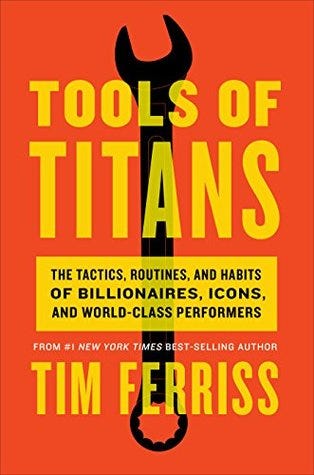
From the author of The 4-Hour Workweek, Ferriss is back with a collection of ideas and advice that he’s collected from over two years from the interviews he conducted for his podcast.
As he explains, this book contains the “distilled tools, tactics, and ‘inside baseball’ you won’t find anywhere else.” 🙌
If you enjoy learning from the best of the best, this collection of interviews is full of nuggets of wisdom and insight from some of the most fascinating and successful modern-day figures. 👏
28. What to Do When It’s Your Turn (And It’s Always Your Turn) by Seth Godin
Godin’s book is unique, which isn’t surprising, since Godin is a very unique person to begin with.
This book is his urgent call for you to do the work you’re hiding from, a manifesto about living with things that might not work and to embrace tension when fulfilling your passions. 🎨
It’s in full color throughout. As it’s described, it feels more like a high-end magazine than a book, and even people who hesitate to buy and read startup books will be engaged by this one.
Godin explained that the format is new for him and as far as he knows, no author has written a book quite this way. 📚
It’s a very urgent, personal, in-your-face read — perfect for those who want something a little different.
29. The Happiness Track: How to Apply the Science of Happiness to Accelerate Your Success by Emma Seppälä
In Seppälä’s book, she draws upon the latest scientific research on resilience, willpower, compassion, positive stress, creativity and mindfulness. 💆
Pourquoi ? En résumé, pour révéler le lien entre le bonheur et le succès, et comment atteindre les deux.
Startup founders can greatly benefit from this book, as it helps you put things into perspective, and can help you incorporate positive stress and mindfulness in your everyday life. 🧘
La vie d'une startup
30. Lost And Founder: A Painfully Honest Field Guide to the Startup World by Rand Fishkin
Fishkin, the founder and former CEO of Moz, discusses in this book how traditional Silicon Valley “wisdom” leads too many startups astray.
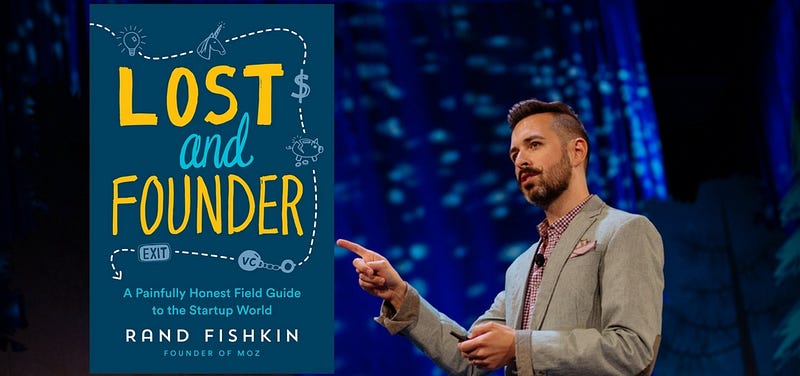
The “typical” idea of a startup story involves a young, brilliant entrepreneur who has a cool idea, drops out of college, overcomes everything, makes billions and becomes the envy of the technology world.
But that’s not this story. 🙅
While Moz is now a $45 million/year business and Fishkin one of the world’s leading experts on SEO, his business and his reputation took fifteen years to grow.
His company didn’t start in a Harvard dorm, but rather as a mother-and-son family business that fell deeply into debt.
Read Fishkin’s learnings and advice — this book is packed with nuggets of wisdom — always in his clever and fun style of writing. 👍
31. The Lean Startup by Eric Ries
To put it bluntly, many startup failures are preventable. 😧
The Lean Startup is an approach that’s being implemented all over the world. It’s changing the way companies are built and new products are launched.
If you aren’t implementing it yourself, you’ve probably at least heard of it.
In any case, this book is your definitive guide to the Lean Startup approach and how you can try it out with your own company — and most importantly, what you can learn from it. 💪
32. La startup $100 : Réinventez votre façon de gagner votre vie, faites ce que vous aimez et créez un nouvel avenir par Chris Guillebeau
M. Guillebeau a identifié environ 1 500 personnes qui ont créé des entreprises rapportant $50 000 ou plus à partir d'un investissement modeste (dans de nombreux cas, $100 ou moins), et il a choisi de se concentrer sur les 50 études de cas les plus intrigantes pour ce livre.
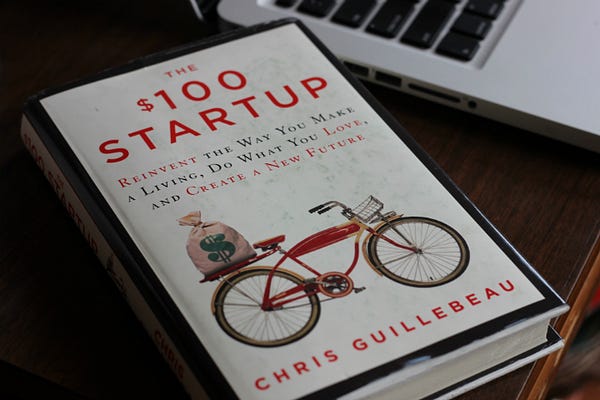
In nearly all cases, people with no special skills discovered aspects of their personal passions that could be monetized, and were able to restructure their lives in ways that gave them greater freedom and fulfillment. 💸
Ce guide regorge de leçons précieuses sur les affaires et l'épanouissement personnel. Il vaut la peine d'être lu par ceux qui sont encore en train d'explorer les intersections entre leur expertise et ce pour quoi les gens sont prêts à dépenser de l'argent.
33. Startup Playbook by Sam Altman
Y Combinator consacre beaucoup de temps à conseiller les jeunes entreprises.
Et bien que les conseils individuels soient essentiels, M. Altman a décidé qu'il pourrait aider Y Combinator à se développer s'il pouvait distiller les éléments les plus généraux de ces conseils dans une sorte de guide qu'ils pourraient ensuite donner aux entreprises de YC et de YC Fellowship.
Eventually, he thought that they should just give it to everyone. 🙌
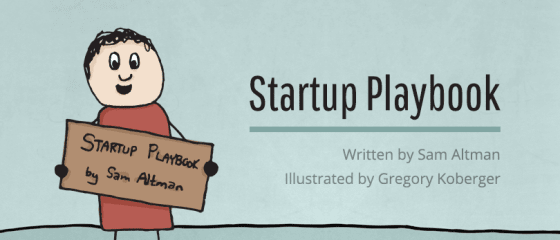
This book is meant for people new to the world of startups. Most of this will not be new to people who have read a lot of what YC partners have written — but the goal is to get it into one place.
It’s a quick read, plus it’s free and available right here. 👈
34. Venture Deals : Be Smarter Than Your Lawyer and Venture Capitalist par Brad Feld et Jason Mendelson
There is (or was) very little reliable information focused on venture capital deals. 🤷
So, Feld and Mendelson decided to change that. For more than twenty years, they’ve been involved in hundreds of venture capital financings, so they decided to share their experiences in the field by creating this book.
Perfect for those both new to, and experienced with, getting funding and working with VCs. This book goes through detailed explanations of terms sheets and explains the process in full. 📑
35. Founders at Work: Stories of Startups’ Early Days by Jessica Livingston
Ce livre est une collection d'entretiens avec les fondateurs de célèbres entreprises technologiques sur ce qui s'est passé dans les tout premiers jours.
And while these people are mostly all celebrities now, what was it like for them when they were just a couple friends with an idea? 👫
Des fondateurs tels que Steve Wozniak d'Apple et Max Levchin de PayPal vous racontent, avec leurs propres mots, les découvertes fascinantes qu'ils ont faites en apprenant à créer une entreprise à partir de rien.
These interviews are definitely required reading for anyone who wants to understand business. 👨💼
36. Startupland: How Three Guys Risked Everything to Turn an Idea into a Global Business by Mikkel Svane
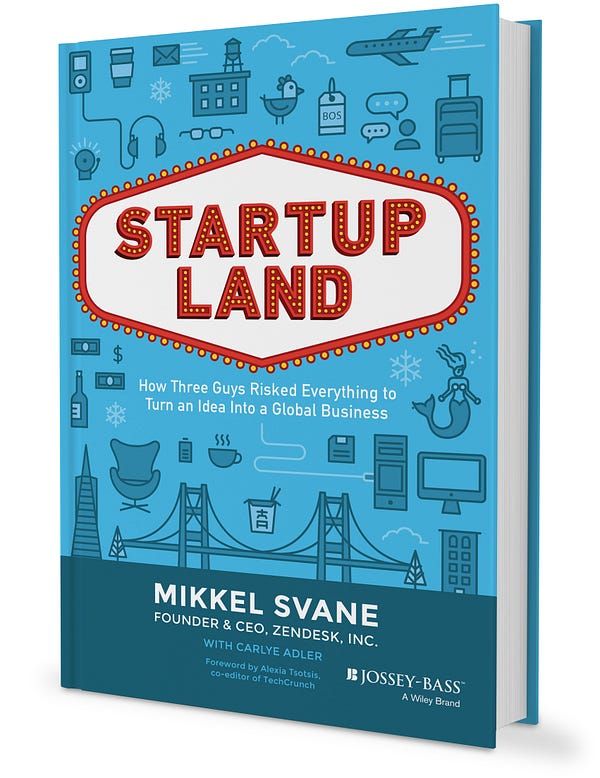
This book is basically the entertaining and high-stakes origin story of Zendesk’s explosive rise to startup fame.
Zendesk had a pretty unconventional start — for starters, it was founded in Copenhagen rather than Silicon Valley. 🇩🇰
Svane and his friends left their dull corporate jobs, risking everything secure in their lives, and managed to create one of the hottest enterprise software companies around. 🔥
It’s a fast-paced, sometimes funny read, definitely to be appreciated and related to by fellow startup founders.
37. A distance : Le bureau n'est pas nécessaire par Jason Fried et David Heinemeier Hansson
Votre entreprise envisage-t-elle de mettre en place une politique de travail à distance ? Dans ce cas, la lecture de ce document s'impose.
Written by the co-founders of the much-beloved Basecamp, this book dives into the pros and cons of remote work, what to expect and even gives real-life examples. 👩💻
Selon eux, le travail à distance augmente le vivier de talents, réduit le taux de rotation, diminue l'empreinte immobilière et améliore la capacité à mener des activités sur plusieurs fuseaux horaires, pour ne citer que quelques avantages.
38. The Year Without Pants: WordPress.com and the Future of Work by Scott Berkun
Saviez-vous que près de 20% de l'ensemble du web utilise le logiciel WordPress ?
The force behind WordPress.com is a convention-defying company called Automattic, Inc., whose 120 employees work from anywhere in the world, barely use email and launch improvements to their products dozens of times a day. 💪
Avec une fraction des ressources de Google, Amazon ou Facebook, elles ont un impact similaire sur l'avenir de l'internet.
But how? 😳
Berkun worked as a manager at WordPress.com, and this book is a collection of his secrets and insights from his time there. It’s a great read for anyone looking for fresh perspectives on creativity, productivity and leadership — and a company that is potentially a model for the future of work.
39. The Everything Store: Jeff Bezos and the Age of Amazon by Brad Stone
Who doesn’t love a good company biography? 😅
Stone dives into the world of Amazon, and offers a fascinating look into Jeff Bezos’s life and how Amazon came to be the company it is today.
It’s a very telling, insightful book — and it gets to the heart of how and why Amazon functions the way that it does. 📦
40. Startup: A Novel by Doree Shafrir
Pour terminer, un roman.
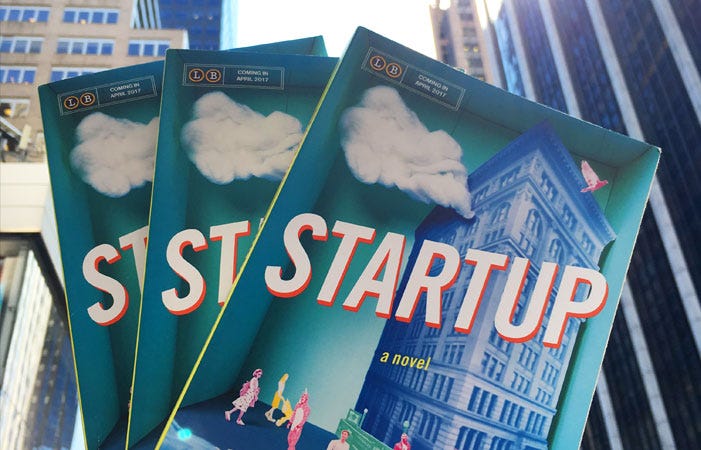
Shafrir is a veteran online journalist and BuzzFeed writer, who has written her debut novel all about the world of startups. It’s a sharp, hugely entertaining story of youth, ambition, love, money and technology’s inability to hack human nature. 💻
Il s'agit sans aucun doute d'une histoire racontable et divertissante pour ceux qui travaillent dans le monde de la création d'entreprise.
We hope you find some new, inspiring books in this ultimate reading list! 😄
Be sure to let us know your favorites from this list in the comments — or if you think there’s another book that deserves to be here.
Vous avez aimé cet article ? Si c'est le cas, faites passer le mot !
Pour en savoir plus sur les startups, le marketing de croissance et les ventes :
- 22+ Best Sales Podcasts You Should Check Out in 2024 - décembre 21, 2023
- Scripts d'appel à froid pour les êtres humains - 21 septembre 2023
- Les 25+ meilleurs outils de vente pour aider votre équipe à réussir - 10 août 2023
